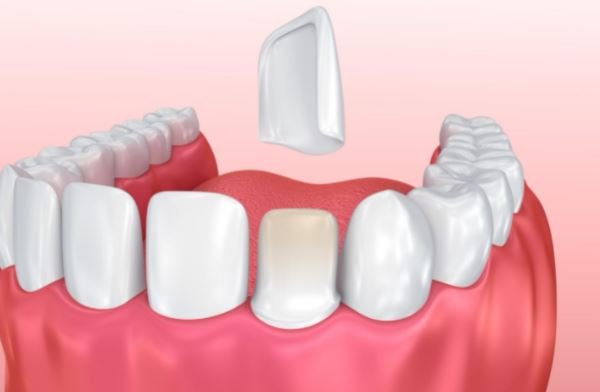 Did you know that an estimated 3.5 billion people worldwide experience some form of oral disease? These include oro-dental trauma, which are injuries to the teeth, mouth, or oral cavity. As many as one in five people can sustain these injuries at some point in their lifetime.
Did you know that an estimated 3.5 billion people worldwide experience some form of oral disease? These include oro-dental trauma, which are injuries to the teeth, mouth, or oral cavity. As many as one in five people can sustain these injuries at some point in their lifetime.
Fortunately, porcelain veneers can help restore teeth damaged by disease or trauma. We outlined some of the top benefits of porcelain veneers in this guide, so be sure to read on.
-
Fix Chipped or Cracked Teeth
Many dentists recommend porcelain veneers to correct minor chipped, cracked, or broken teeth. These porcelain shells cover the entire front surface of the teeth. Dentists bond them to the visible side of the teeth, also known as the buccal or labial surface.
It’s vital to have minor tooth chips or cracks fixed right away, as they will only get bigger over time. Keep in mind that the teeth can exert about 200 pounds of pressure each time you bite down. That’s more than enough force to cause small chips or cracks on your teeth to spread.
Getting porcelain veneers is just one of your options, though, as you can also go with dental bonding. Dental bonding is another common restoration method for minor chips or cracks. However, one of the key advantages of porcelain veneers is that they can last up to 20 years or more.
-
Camouflage Extrinsic and Intrinsic Tooth Stains
Extrinsic stains are those that affect only the outermost layer of the tooth enamel. These stains are usually a result of drinking coffee, tea, wine, or carbonated drinks. Cigarette smoke, which contains over 7,000 chemicals, can also cause extrinsic stains.
Intrinsic stains are those that occur within the inner layers of the teeth, such as the dentin. Aging, oral trauma, and tooth decay can all cause these deeper stains.
Teeth whitening can help fix minor extrinsic stains but not intrinsic stains. By contrast, a porcelain veneer covers the front area of a tooth, hiding all types of stains. The full front coverage it provides helps address both extrinsic and intrinsic stains.
What’s more, according to Newburydentalgroup.com, porcelain veneers don’t stain. That’s because porcelain isn’t porous, unlike tooth enamel. This non-porous nature makes pigments in food and drinks slide off of the porcelain.
-
Make Teeth Uniform In Size and Shape
Microdontia is a condition characterized by unusually small teeth. Researchers estimate that it affects about 1.5% to 2% of the population.
If you have one or more teeth smaller or shorter than the rest, porcelain veneers can help. The same goes for minor gaps between the teeth, which can also result from having tiny teeth. A dentist can correct the issue by creating a veneer that complements the size and shape of the rest of your teeth.
Porcelain Veneers for a Healthier and Longer Lasting Smile
As you can see, porcelain veneers benefit not only your smile but your overall oral health, too. They can restore and protect your teeth from more damage, so in a way, they can also help prevent tooth loss. Plus, they correct cosmetic flaws like stains, giving you a more dazzling smile.
All that should be enough reason to consider getting porcelain veneers.
Interested in more health, beauty, and fitness guides like this? Then feel free to read our many other recent news and blog posts!




